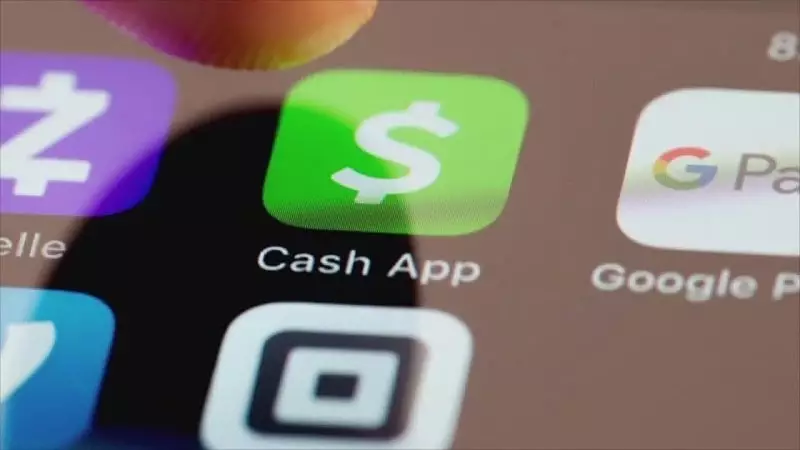
Cash App Scams: Common Schemes & Solutions
Also known as Square Cash in the past, Cash App is a US- and UK-focused mobile payment service which processes real money transfers through a native mobile app. Its credibility is proven by 57 million monthly transacting users and $14.7 billion in annual revenues as for 2024, so the service is top-notch and friendly to online gambling services. But users should be attentive to real money transfers of all kinds, especially when these are fraudulent schemes associated with Cash App scams. Unfortunately, some customers may face fraud attempts of different sorts, so our team prepared a list of the most common schemes scammers may apply and the best ways to avoid them. Keep on reading to get information about common Cash App scams and the ways to make your experience safe and secure!
Common Cash App Scams & Ways to Avoid Them
Unfortunately, scammers invent more and more fraudulent schemes, trying to steal users’ money. That’s why we are here to highlight the most common Cash App fraud schemes so that you could easily reveal and avoid them.
Fake Cash Flipping Schemes Through Cash App
The method is commonly spread across social media channels where scammers offer users to apply their funds for certain schemes in order to increase the initial amount. Usually, these messages are associated with certain ‘insight knowledge’ or something which shows that the scammers are aware of secret schemes which increase the amount by 100% or even more. It may look like this: ‘We need people who can send $100 for an exchange and get $150 back to the card within an hour’. Scammers may even add fake screenshots showing that previous customers had already received the funds. Be careful with such easy-money promises and don’t send money to strangers, even when they have low-risk offers with small amounts of $10 turning into $11. Remember that Cash App is a payment option which can’t bring users extra funds and will never request upfront payment to ‘flip’ your money.
Cash App Phishing Attacks
Another fraudulent scheme is associated with phishing attacks when scammers use fake emails, messages, or even domain names to steal customers’ sensitive information, such as credit card numbers, credentials, and other details, after which, this data is used for stealing funds from victims’ Cash App accounts. You may come across emails, usually, in the Spam folder, specifying that you’ve got a Cash App payment and you need to click on the link to get it. Sometimes, these messages are associated with fake security messages stating that your account was hacked and you need to enter your sensitive data to change your password. Mainly, scammers use names common to the official brand’s name, such as ‘Cash App Official’. If you get such an email, ignore it or contact the Cash App team through the official 18009691940 number to find out the details.
Accidental Overpayments via Cash App
The “accidental overpayment” scam on Cash App works this way: a scammer pretends to mistakenly send you more money than intended, forcing you to send this amount back. In most cases, scammers get in touch with users through the Cash App platform, mobile number, or email. Scammers may prepare a story explaining how they managed to overpay and why they urgently need this money back. This way, they apply pressure tactics and don’t give you time to think and analyse this information. When you face anything of this kind, give yourself some time to figure it all out, remember that Cash App has no mechanism for accidentally sending money, double-check your incoming payments, and contact Cash App official customer support.
Fake Cash App Investment Opportunities
Scammers may promote fake investment opportunities through Cash App on social media. You may come across fake offers to invest funds through Cash App and get solid payments as your income percentage. For example, to buy shares of the Apple company for $200 and get $250 in a week. Scammers may opt for convincing but fake testimonials and success stories, but you should stay vigilant, be skeptical when it comes to such offers from strangers, and remember that Cash App is a service to send money between users rather than invest funds.
Social Media Giveaways with Cash App Rewards
You may also come across fake social media giveaways promising participants significant cash rewards, such as hundreds or thousands of dollars, through Cash App. Usually, most scammers’ requirements are simple: you need to subscribe, follow a certain post, and tag a friend. However, scammers may also ask for a small ‘processing fee’ to be sent via Cash App to “process” the giveaway entry. That’s where this fraudulent scheme starts working. To protect yourself, check the Cash App official site to make sure that it has no current promotions of this kind, analyse the social media account promoting the giveaway, remember not to send money or share your Cash App credentials for giveaways, and report this post to the social media platform.
Protecting Yourself from Scams: Simple & Efficient Tips
Our team analysed the market and considered a range of complaints from customers, so we can highlight the most efficient ways to avoid Cash App scams:
- Keep your Cash App credentials safe: make sure not to share these details with anyone, especially when it’s a suspicious condition of getting your payment from unknown users or participating in a giveaway.
- Be wary of messages offering easy money: all the schemes which offer profit for doing nothing and requiring your funds or essential details are fraudulent, so you should stay away from such fake promises.
- Verify any links or websites before clicking: when you get an ‘official’ message from Cash App customer support, make sure that the sender’s address is really official and doesn’t have extra words or letters.
- Don’t feel pressured to act quickly on financial offers: scammers use pressure tactics not to let people take their time and analyse the situation, so make sure not to rush and double-check all the details.
- Report suspicious activity to Cash App: you can do it directly through the app, and when you share this information among other people, this allows the society to be aware of such schemes and avoid them.
What to Do If You Get Scammed: Professional Guide
Unfortunately, some scammers may sound too convincing, which means that some customers may get caught on their hook. If so, these are the steps to follow if you got scammed:
- Contact Cash App support & report the scam: thus, you will inform the team about a new scheme and make sure that the company will protect your data & money.
- Gather evidence like screenshots of emails: collect all the messages and emails from scammers, including the sender’s data, to use them for investigation.
- Change your Cash App pin code and enable two-factor authentication: this way, you will be sure that scammers won’t have access to your data and money.
- Report the scam to the Federal Trade Commission (FTC): though this doesn’t guarantee that your funds can be returned, it’s still one more way to track scammers.
Additional Tips and Resources
As an app working with real money transfers, Cash App also has a range of security tools to protect its customers. That’s why it’s important to keep the Cash App updated with the latest security features. The official domain to install the app, get updates of any kind, and contact customer support is https://cash.app/, and the Help page can serve as an informative FAQ section. When you face problems with Cash App scams, you can report scams to the Federal Trade Commission (FTC) through their official website at reportfraud.ftc.gov.
Conclusion
Cash App is a trustworthy banking option, and when you remain vigilant and follow basic security rules, scammers won’t have a single chance. Make sure to avoid easy-money promises and schemes, double-check emails and links, especially in the Spam folder, and take your time to think and contact Cash App official customer support. With these simple steps, you can protect your sensitive data and real money.






